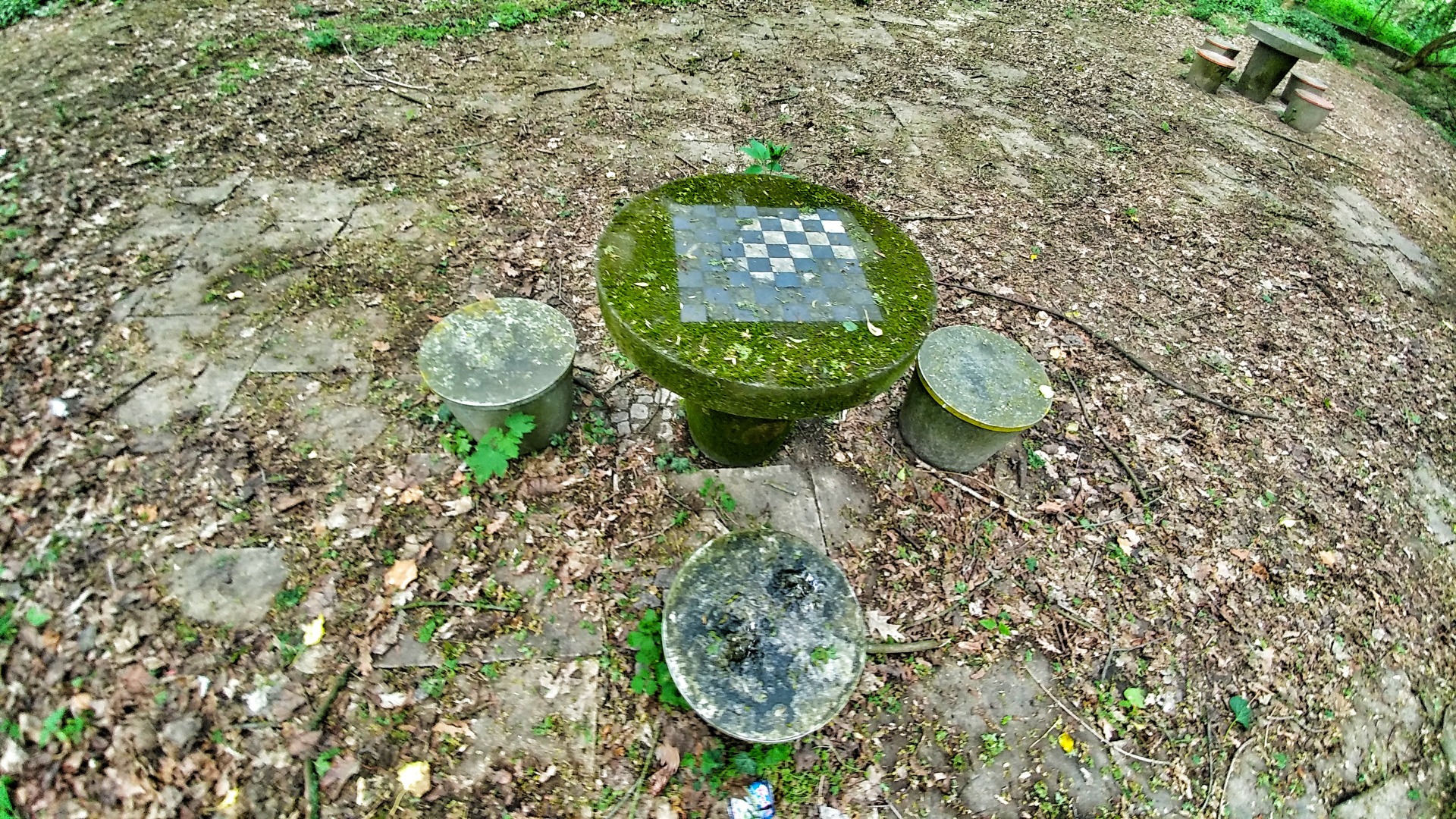Once upon a time, leisure in socialism was carefully planned - precise as clockwork, colorful as a children’s book, brimming with optimism. In an era when recreation was as organized as the factory work schedule, the GDR fashioned its own little paradises along riverbanks and between concrete blocks. Here, people were meant to unwind, to play, to laugh - and to celebrate progress along the way.
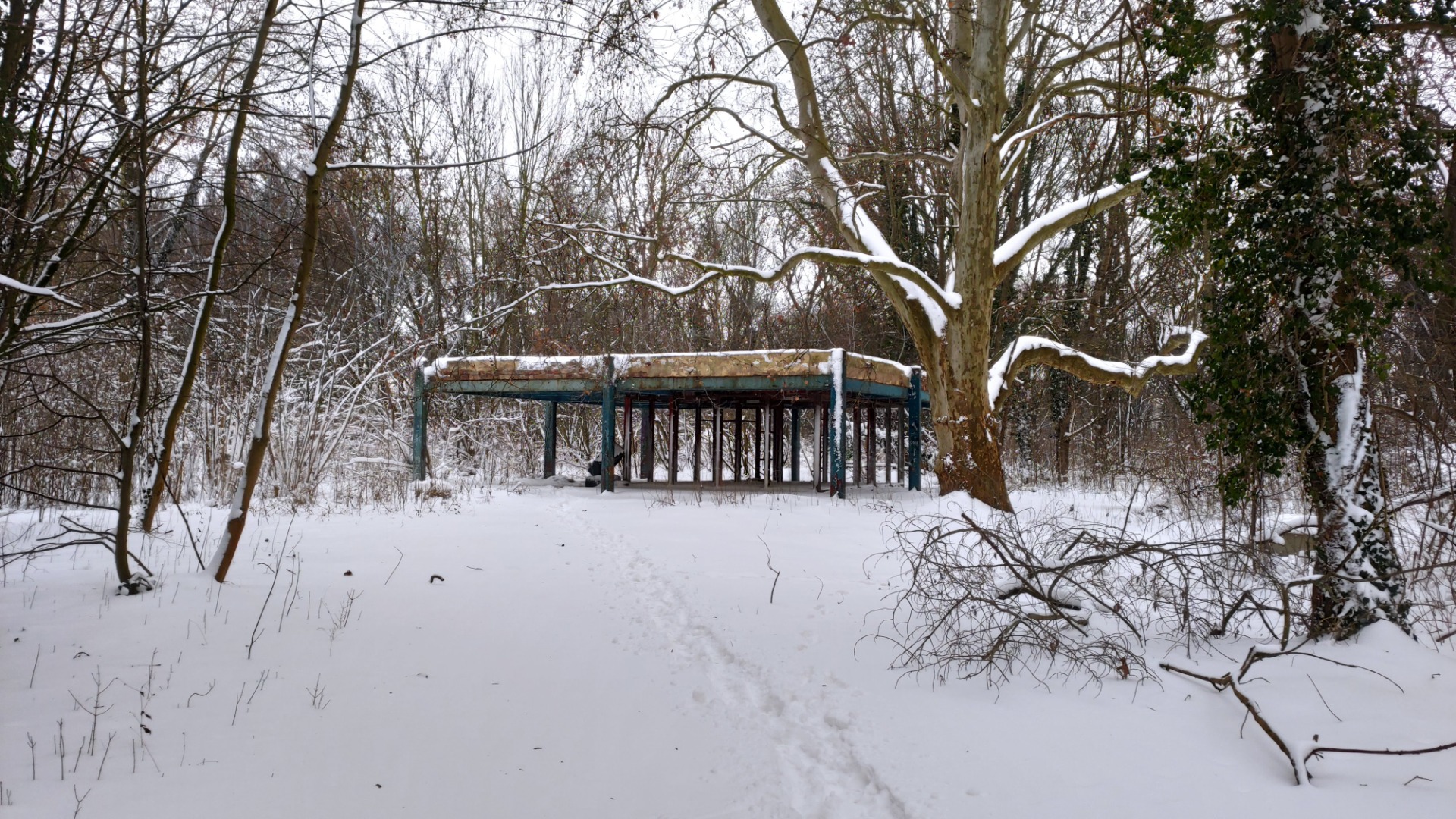
But today, many of these recreation wonders have been reclaimed by nature’s wilderness. On Peißnitz Island in Halle - once a model of socialist leisure culture - grass pushes through cracks in the concrete, shrubs overtake chessboards, and moss creeps across old minigolf courses.
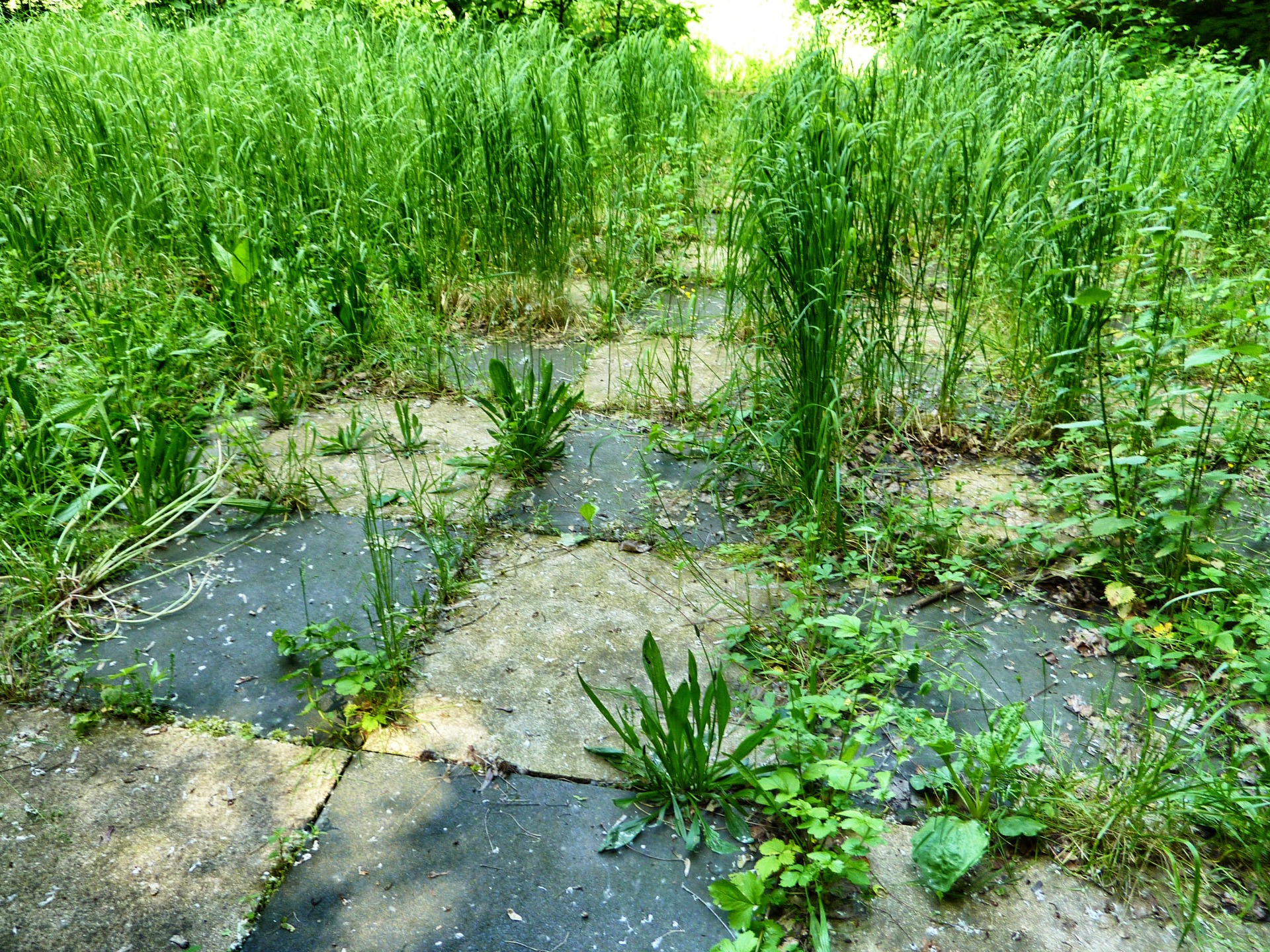
A rusted pavilion skeleton, a bent wire net, a faded playing field: these are the last witnesses to an era when even an old airplane was reborn as a café and children slid to the sky on a rocket-shaped slide.
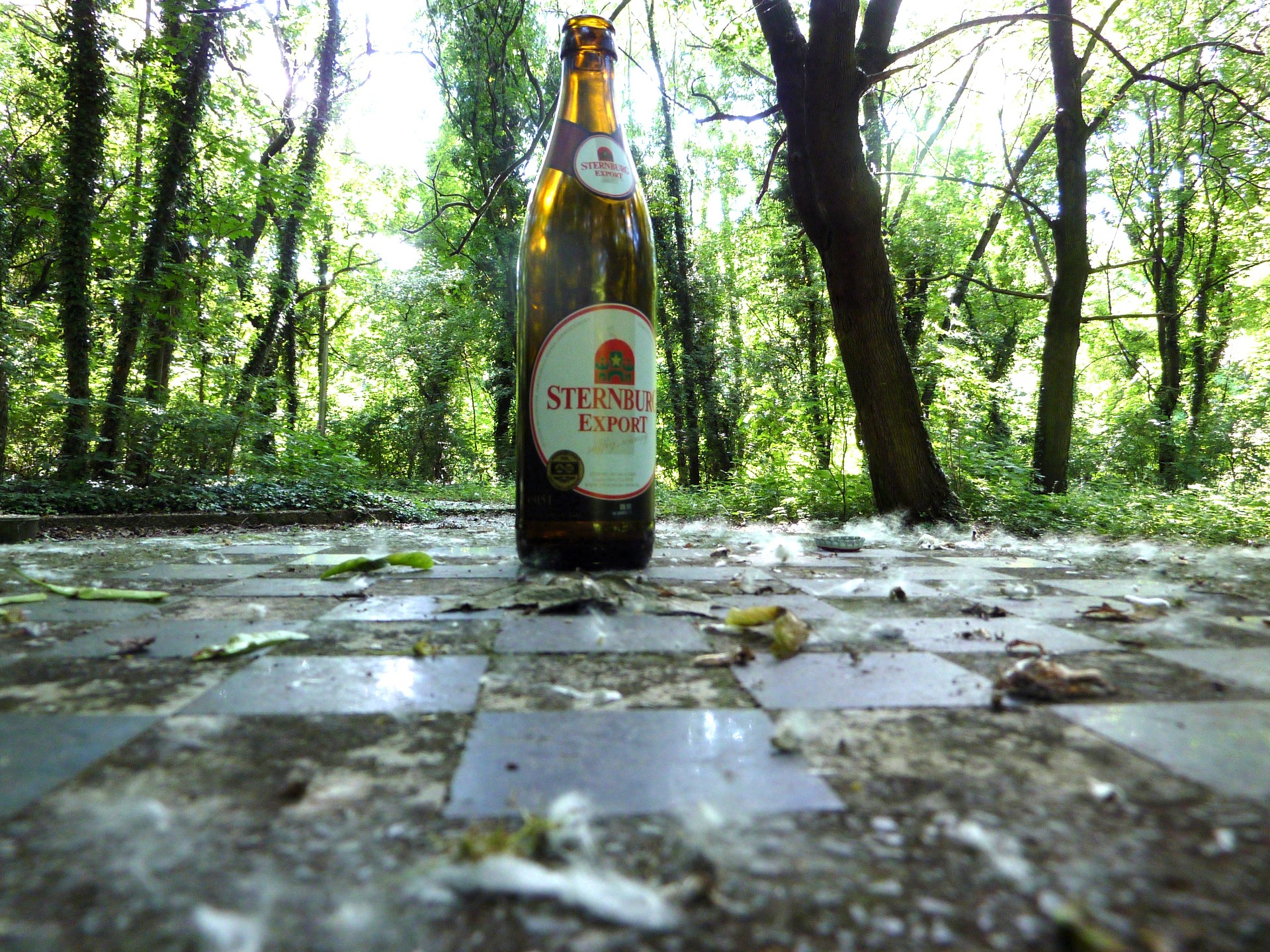
Anyone weaving through the undergrowth here, between dappled sunlight and shadow, is walking in the footsteps of a utopian idea of leisure - half forgotten, half overgrown, but still full of stories.
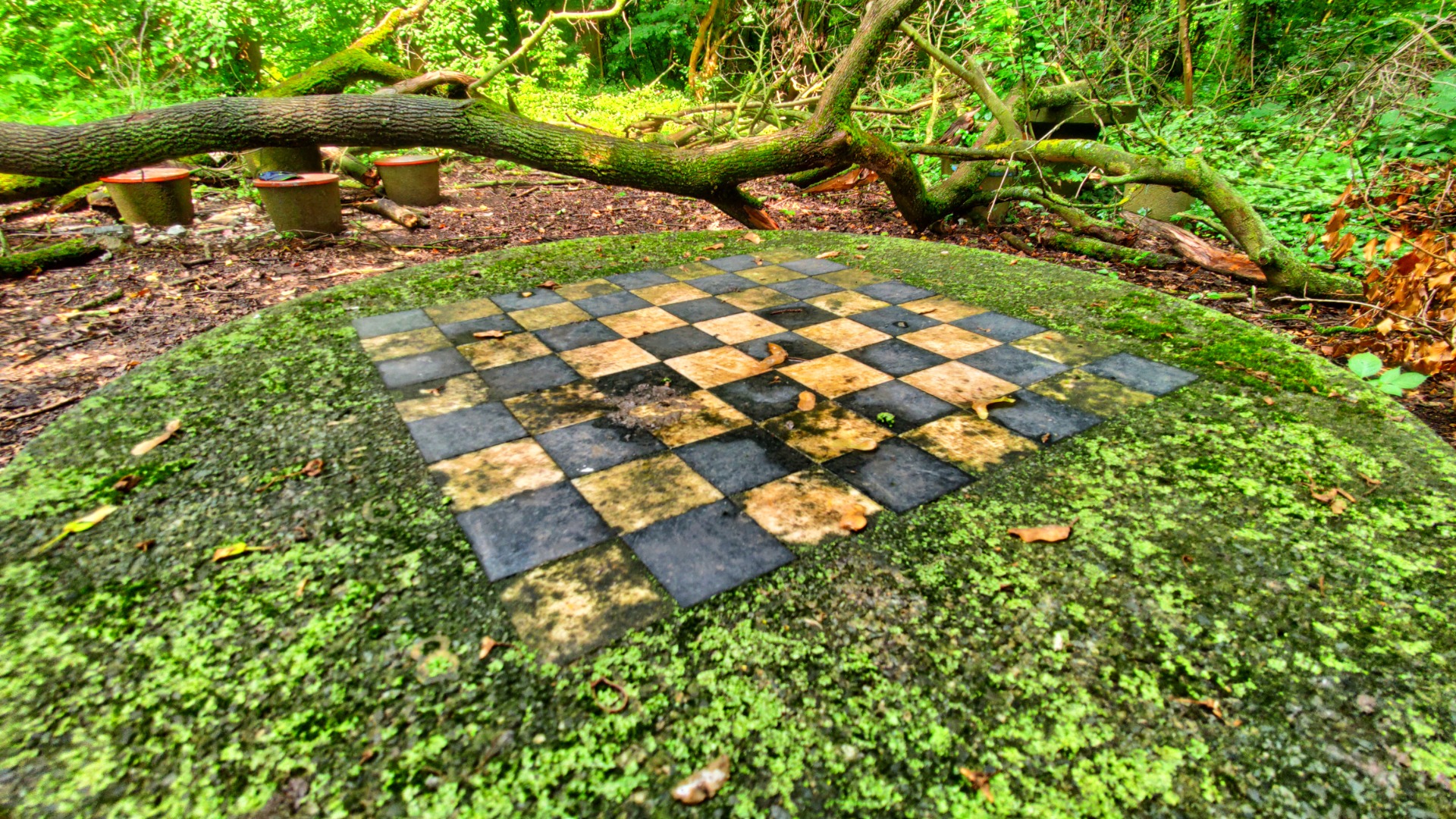
Relics Among the Trees
Deep in the bushes, remnants of the minigolf course survive; underground, a chessboard lies hidden beneath weeds and decades of soil; nearby stands an open-roofed house without walls. In the southern part of Peißnitz Island, overgrown trails and vanished lawns define the landscape.
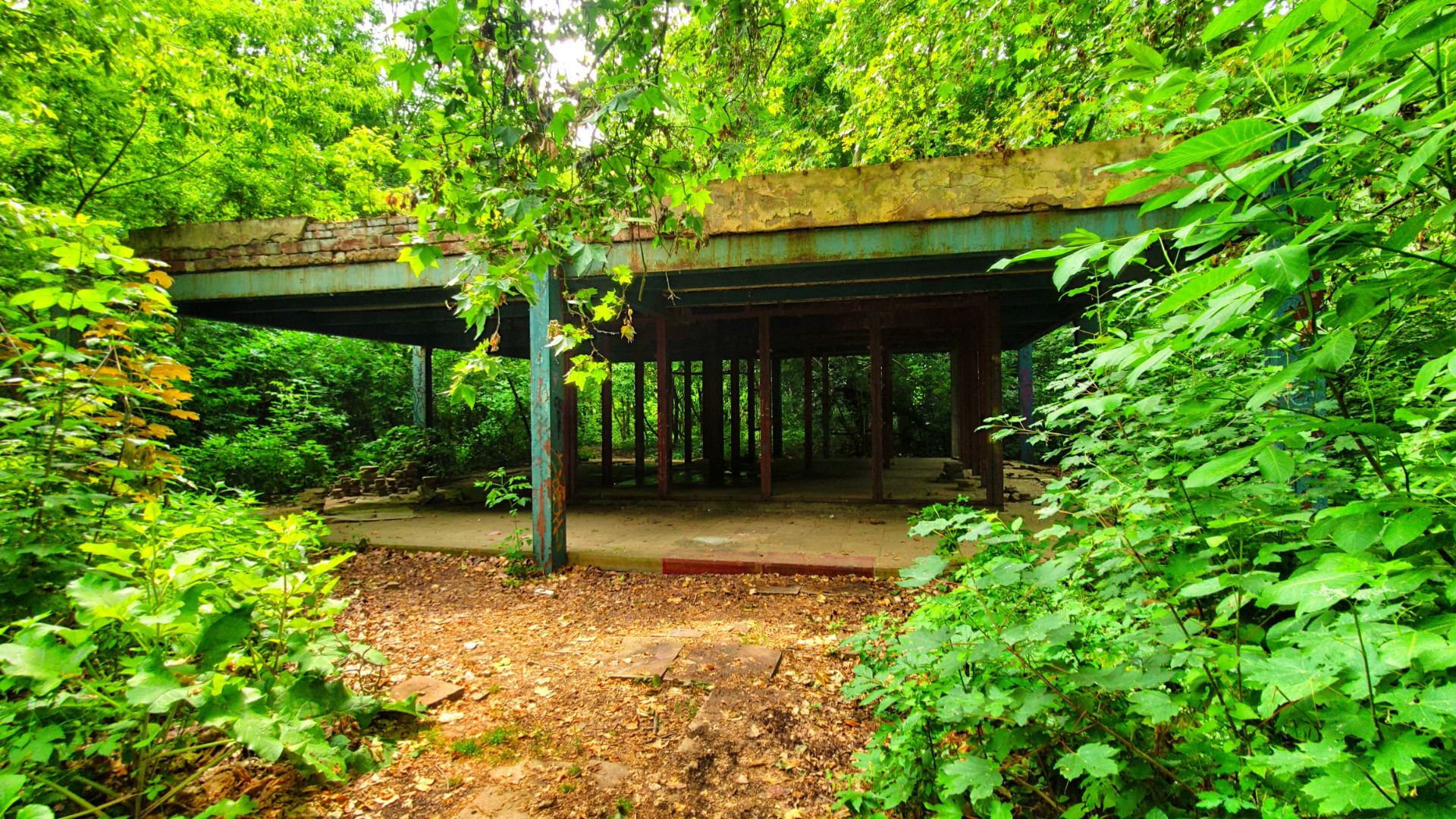
Yet you still stumble upon tokens of the past: A giant chessboard made of sixty-four stone tiles bordered by a low brick wall. Next to it, the faded remains of the once-busy minigolf course. In the center of the area, the rusted frame of a pavilion still reaches skyward. Empty beer bottles and tags hint at parties by local youth, a fallen tree has recently smashed one of the rare chess tables, and grass sprouts between the chessboard’s squares.
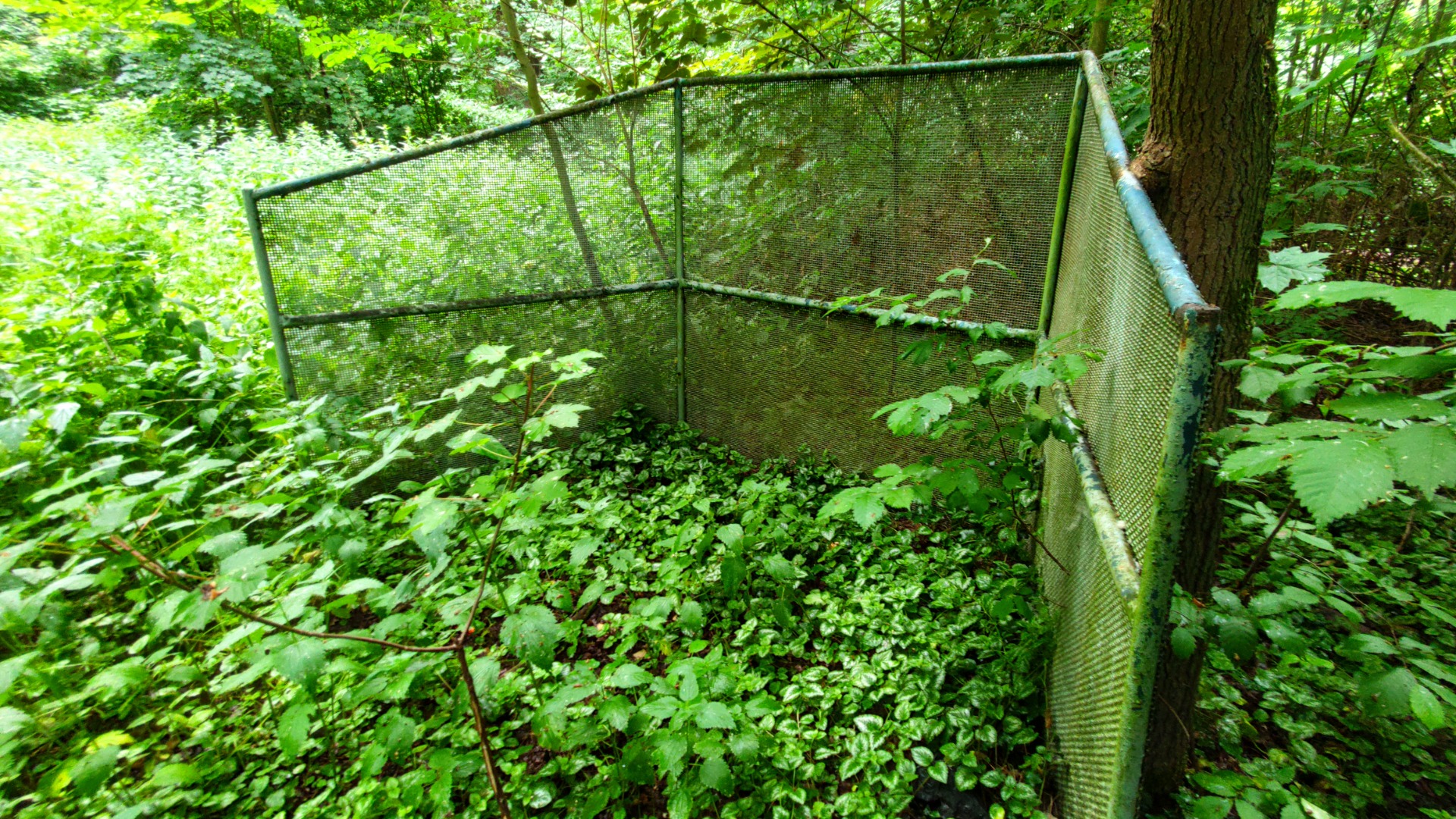
Leisure in the “Wasteland”
In the early 1970s, as the nearby workers’ city Halle-Neustadt rose rapidly, city leaders decided to transform this island - known as “Pustenzia” (“wasteland”) by its early Slavic settlers - into a green haven. Paths, exhibition halls, a beer garden restaurant (“Saaleaue”), an open-air stage, and a miniature railway appeared.
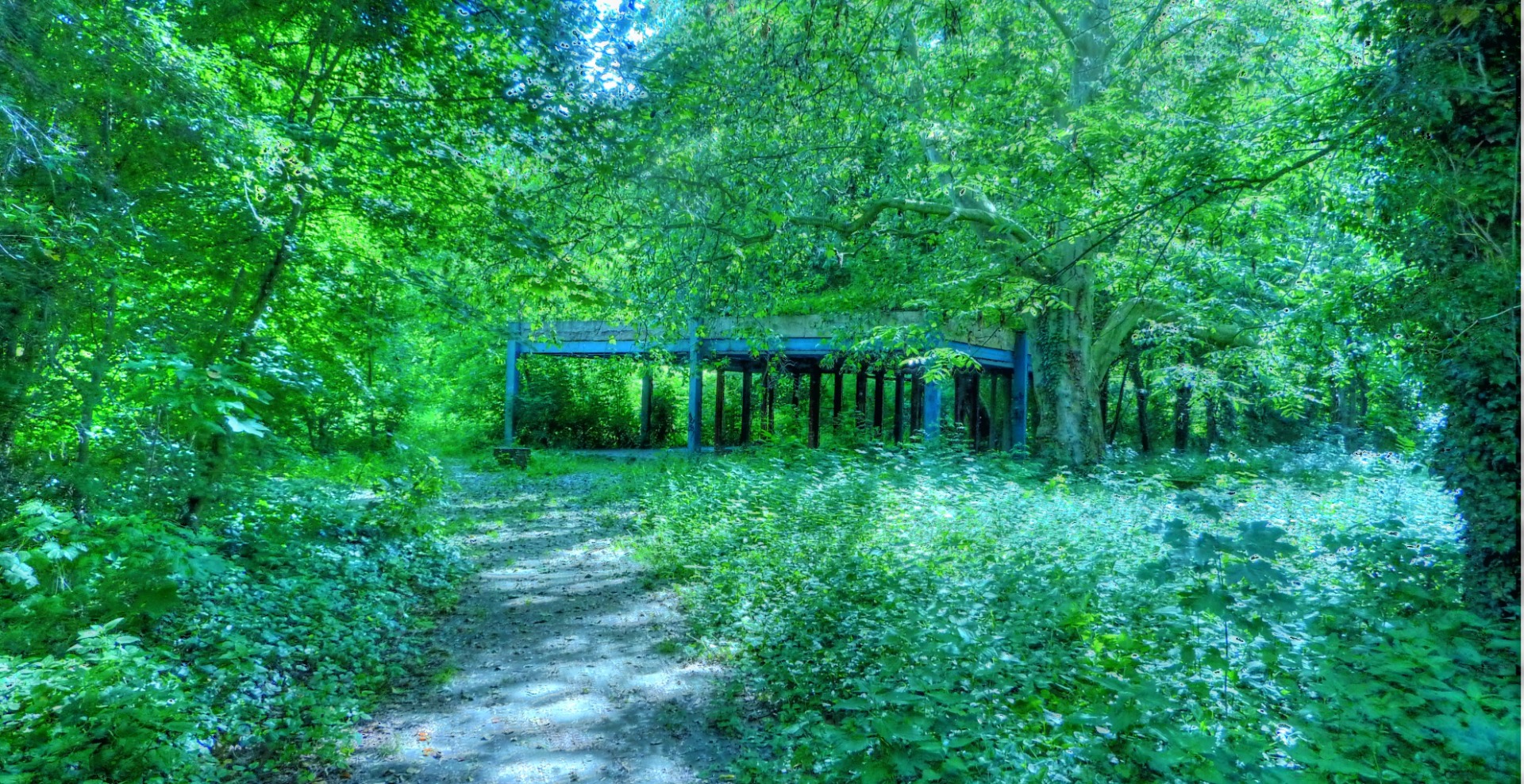
The “socialist man,” it was hoped, would gaze confidently into the future, even at play: children hurtling down a rocket slide, adults playing minigolf, table tennis, or chess at stone tables with built-in boards. The “active recreation zone” also had boccia fields, open-air bowling alleys, the Soviet-introduced “gallows bowling,” and a “Bummi House” where children listened to fairy tales.
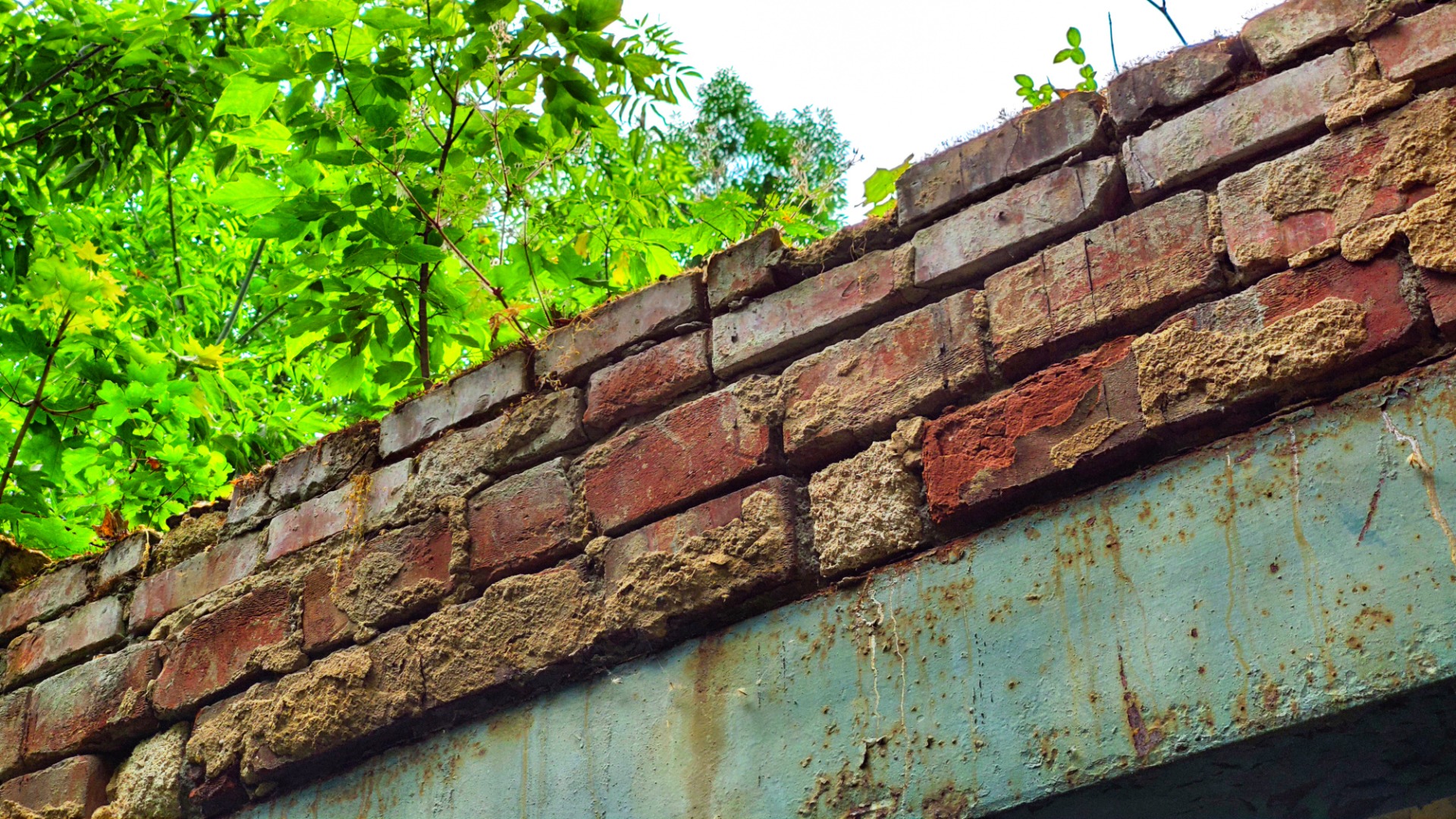
At the “VEB Leisure Center” pavilions, you could borrow sports gear, books, magazines, and board games. Right next door stood a retired Il-14 passenger plane, repurposed as a whimsical café - a symbol of conquering both nature and technology.
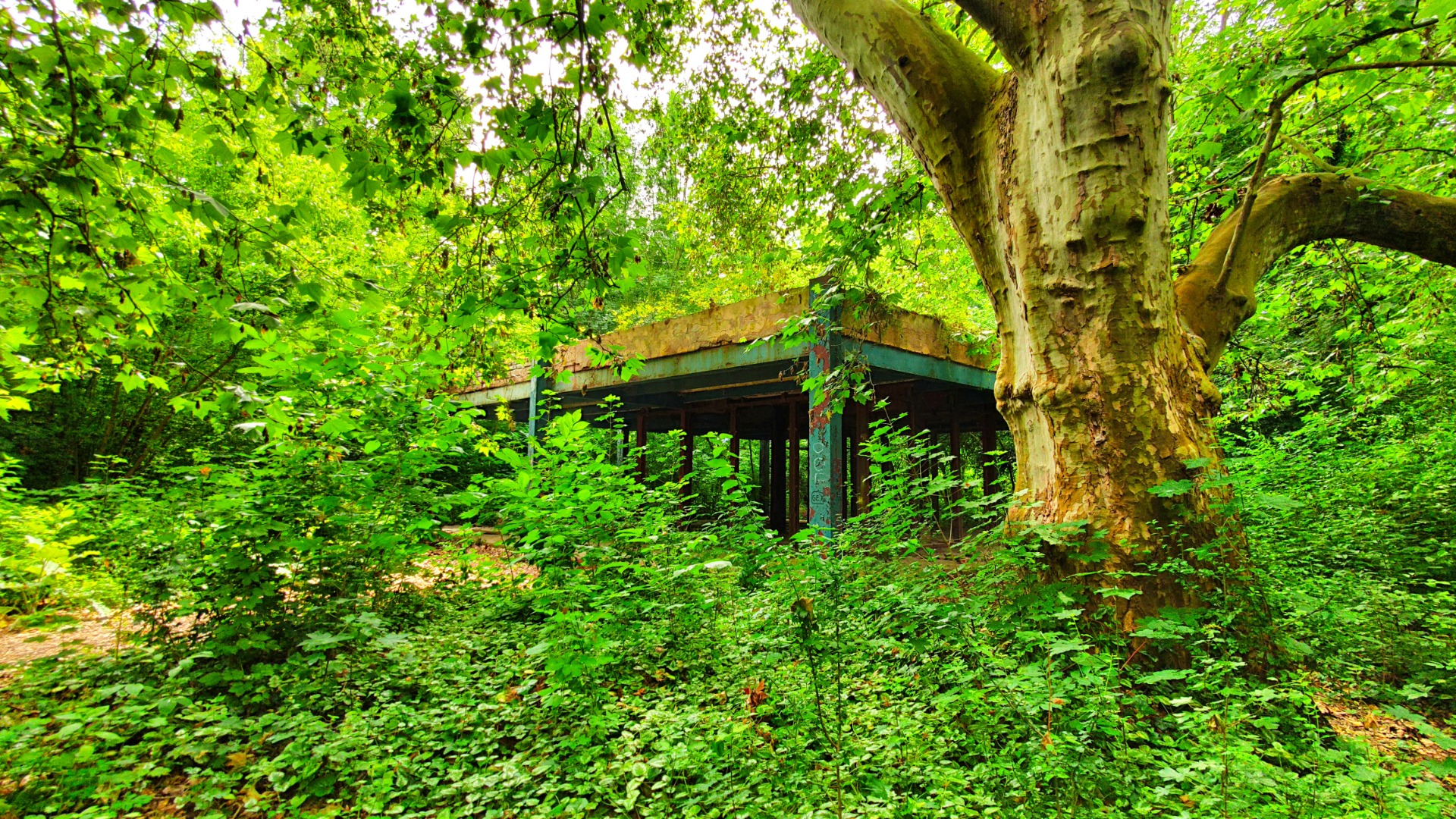
Confident in their progress, planners built these amusements directly in the Saale floodplain. Later, they even added a striking new planetarium two meters above the waterline, full of expensive technology.
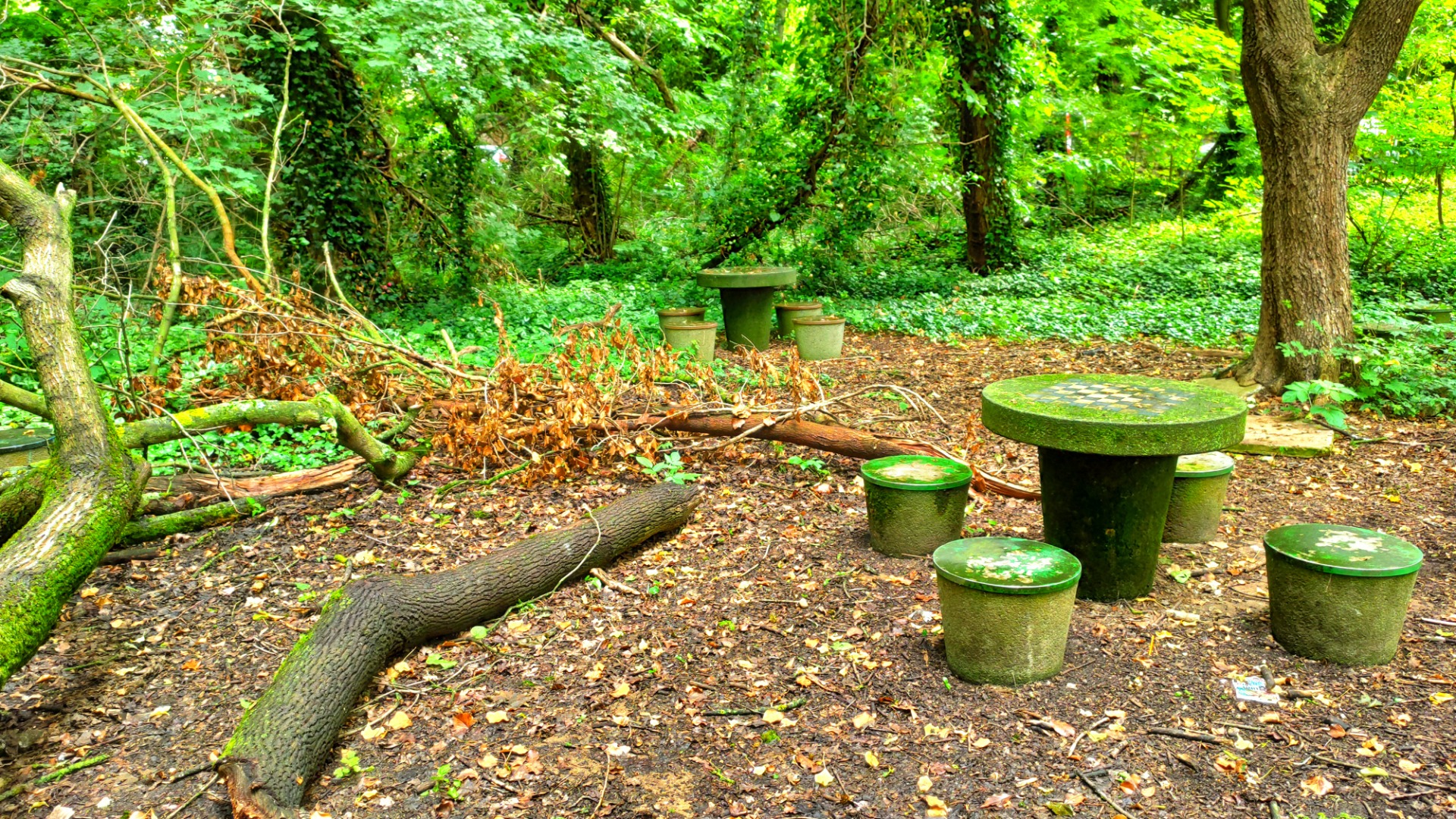
When Nature Took Over
But the Saale didn’t care for human plans. Every few years, the river overflowed and the leisure landscape of the “We are achieving, we are rewarding ourselves” generation ended up underwater. Paths washed out, concrete cracked, structures rusted, and fertile silt settled on boccia courts and the giant chessboard. In the minigolf course, a forest of saplings sprouted. One pavilion closed even before the end of the GDR; the other was rarely open in the final years.
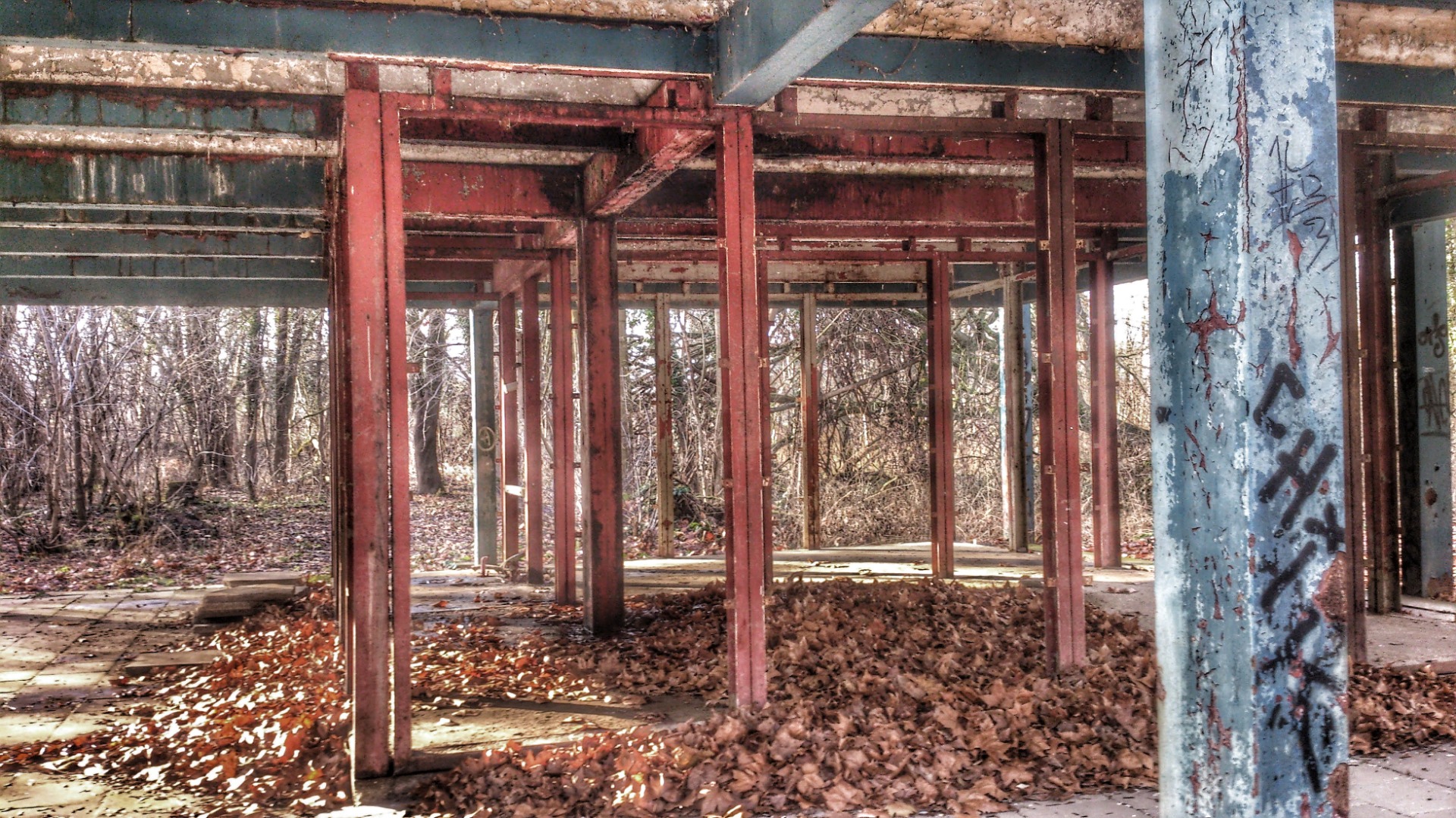
The End - and a Possible New Start
With the collapse of the GDR, the park also disappeared. The rocket slide landed in the scrapyard, bowling and chess tables vanished, the giant chessboard was swallowed by earth and grass. One pavilion was demolished, from the other only a rusted skeleton remained. And deep in the brambles, a patch of wire fencing is all that’s left of the minigolf course.
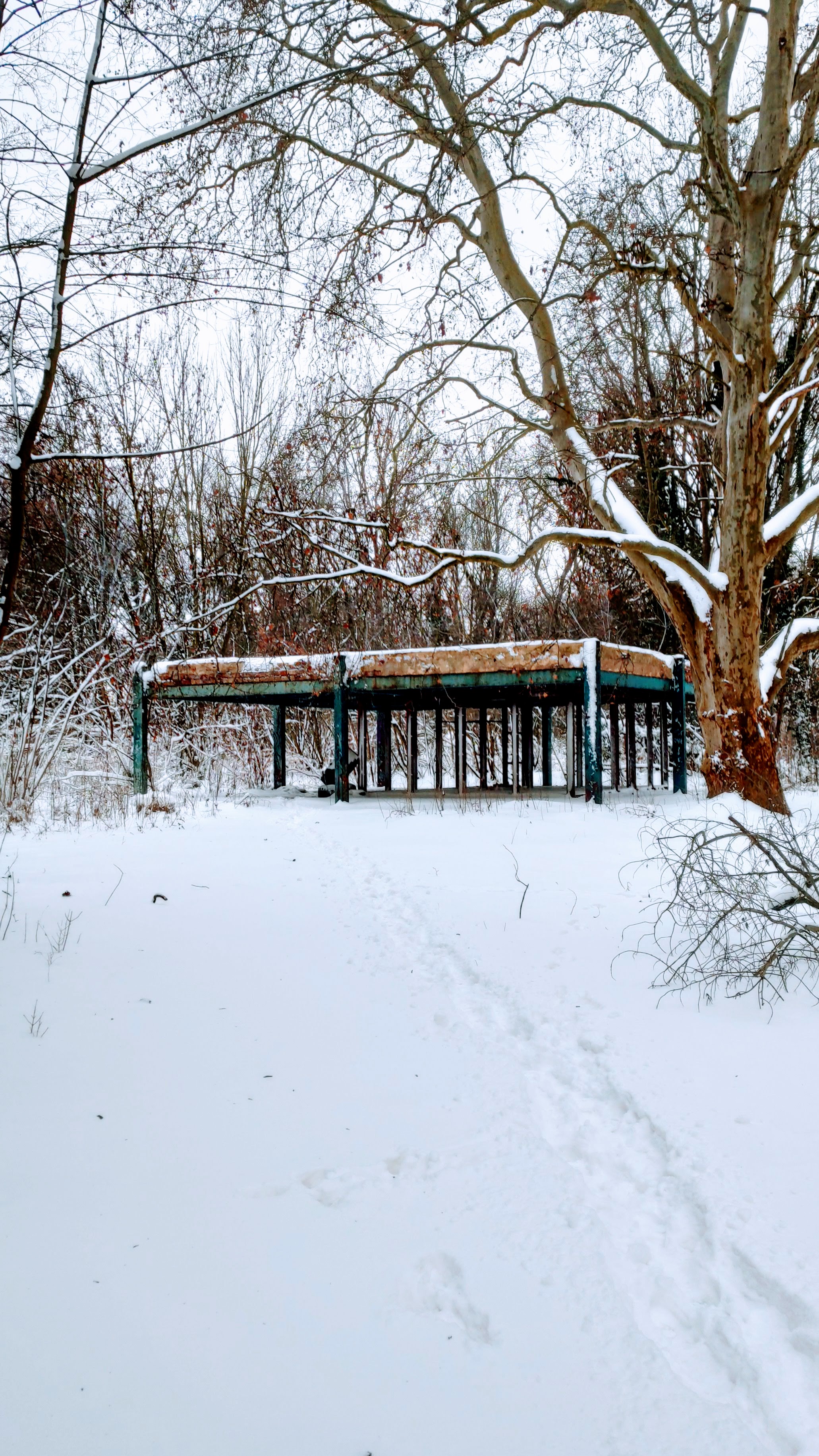
Yet a final act awaits: According to city officials, there are no plans to wipe these relics away. Instead, the entire area is set to be faithfully reconstructed as a heritage monument. Preparations for the project’s planning phase are already underway.
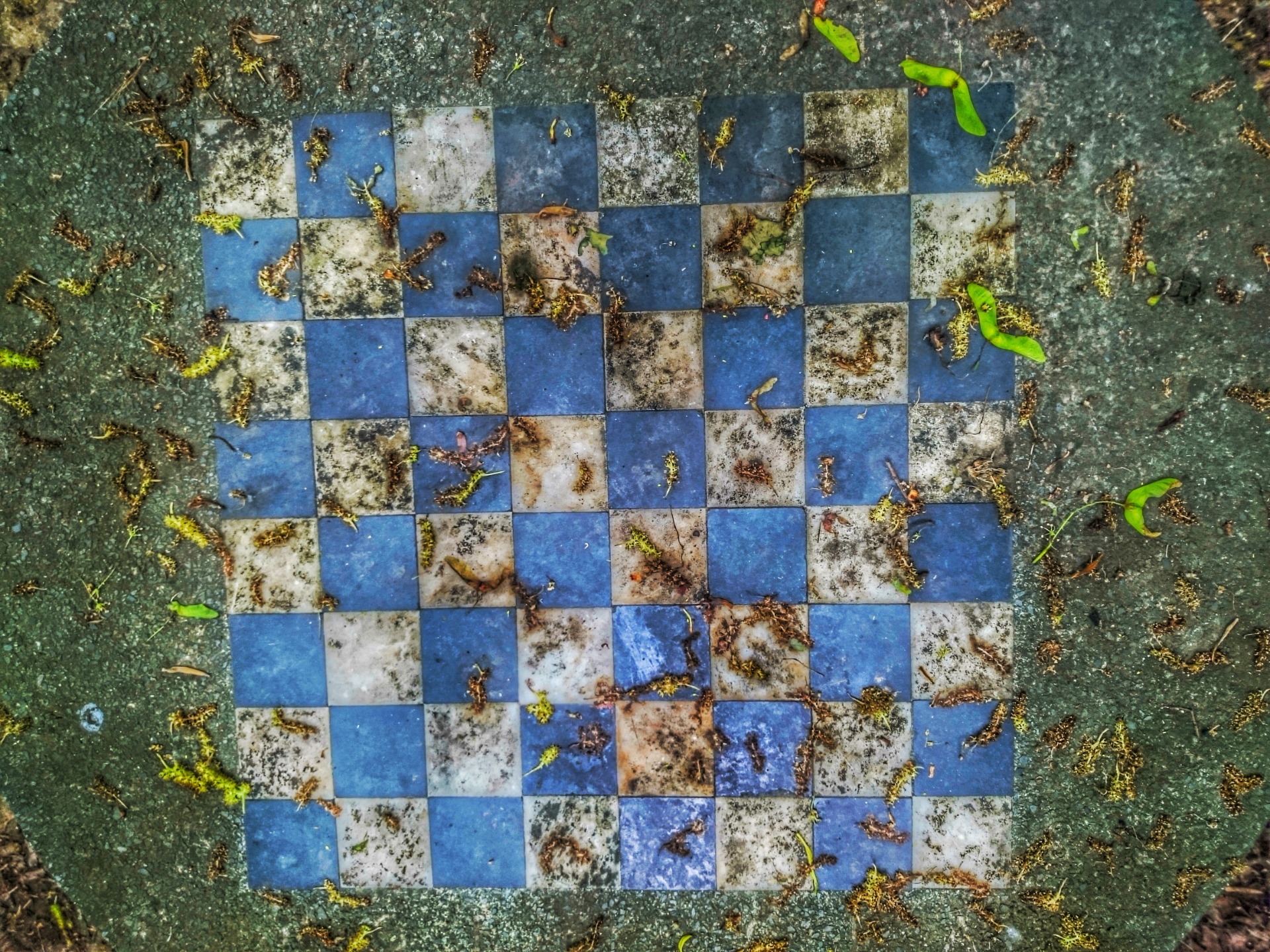
Perhaps, just maybe, the idea of a socialist leisure paradise will find new life - this time, armored against the Saale’s floods.
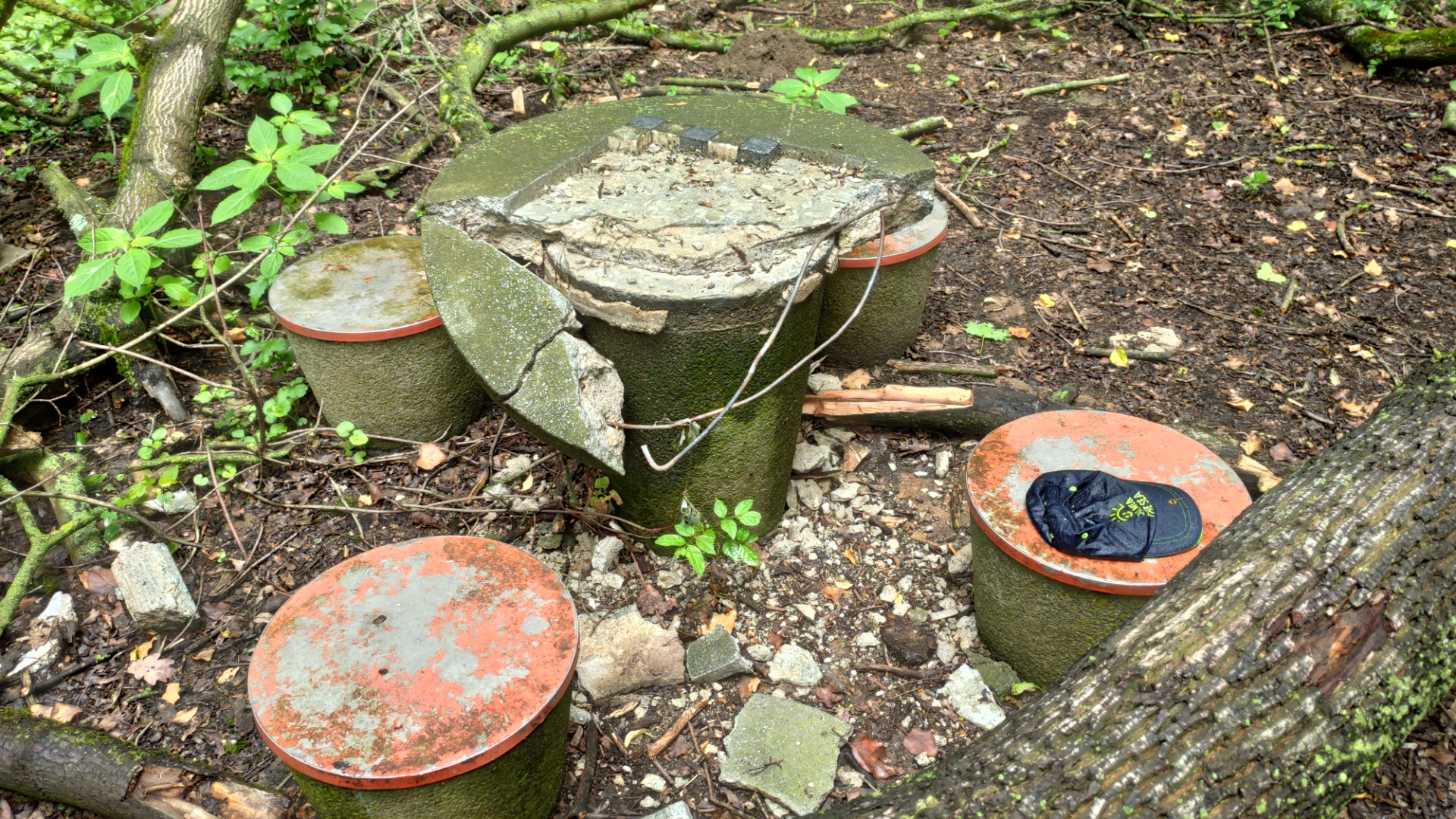
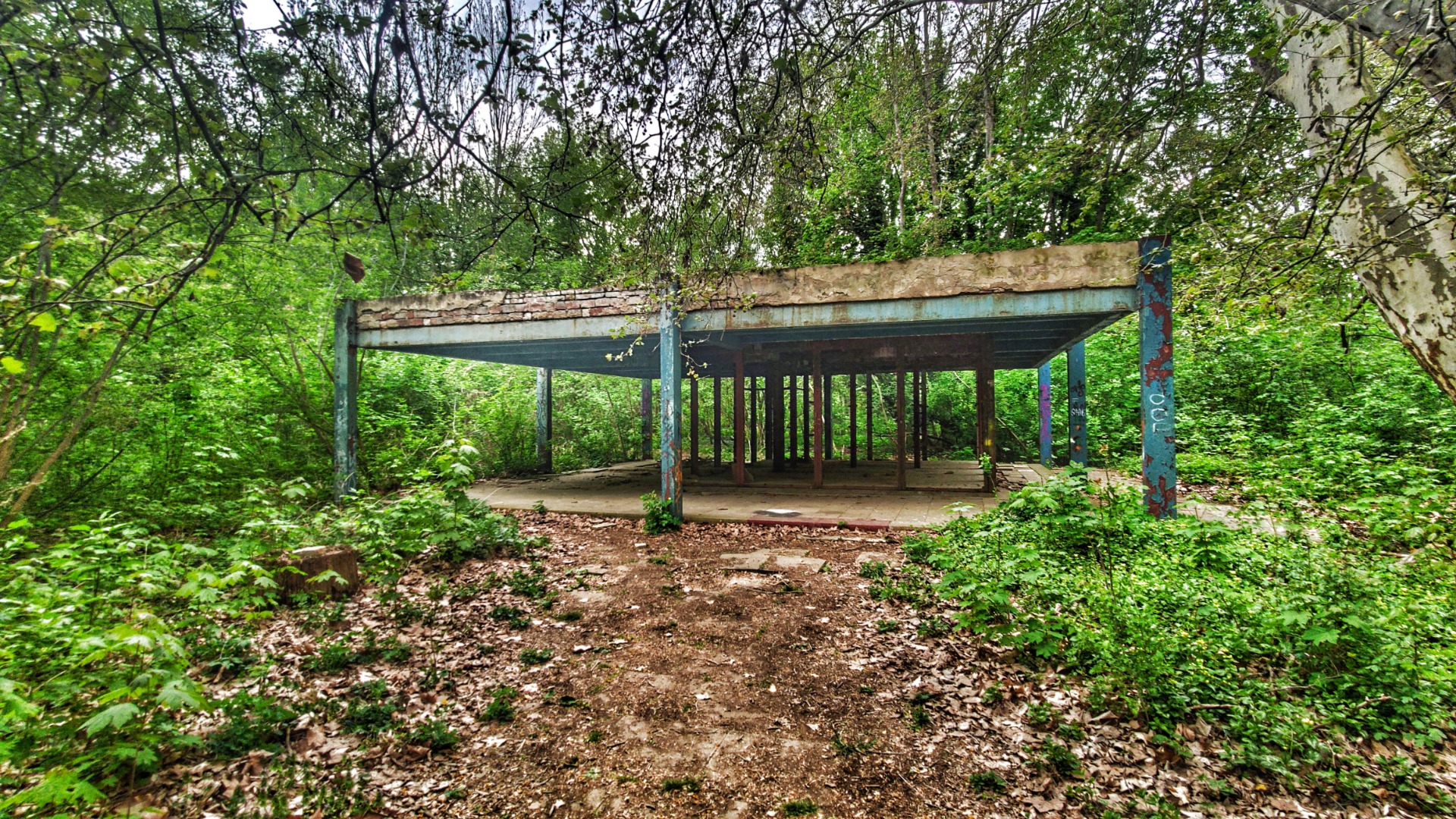
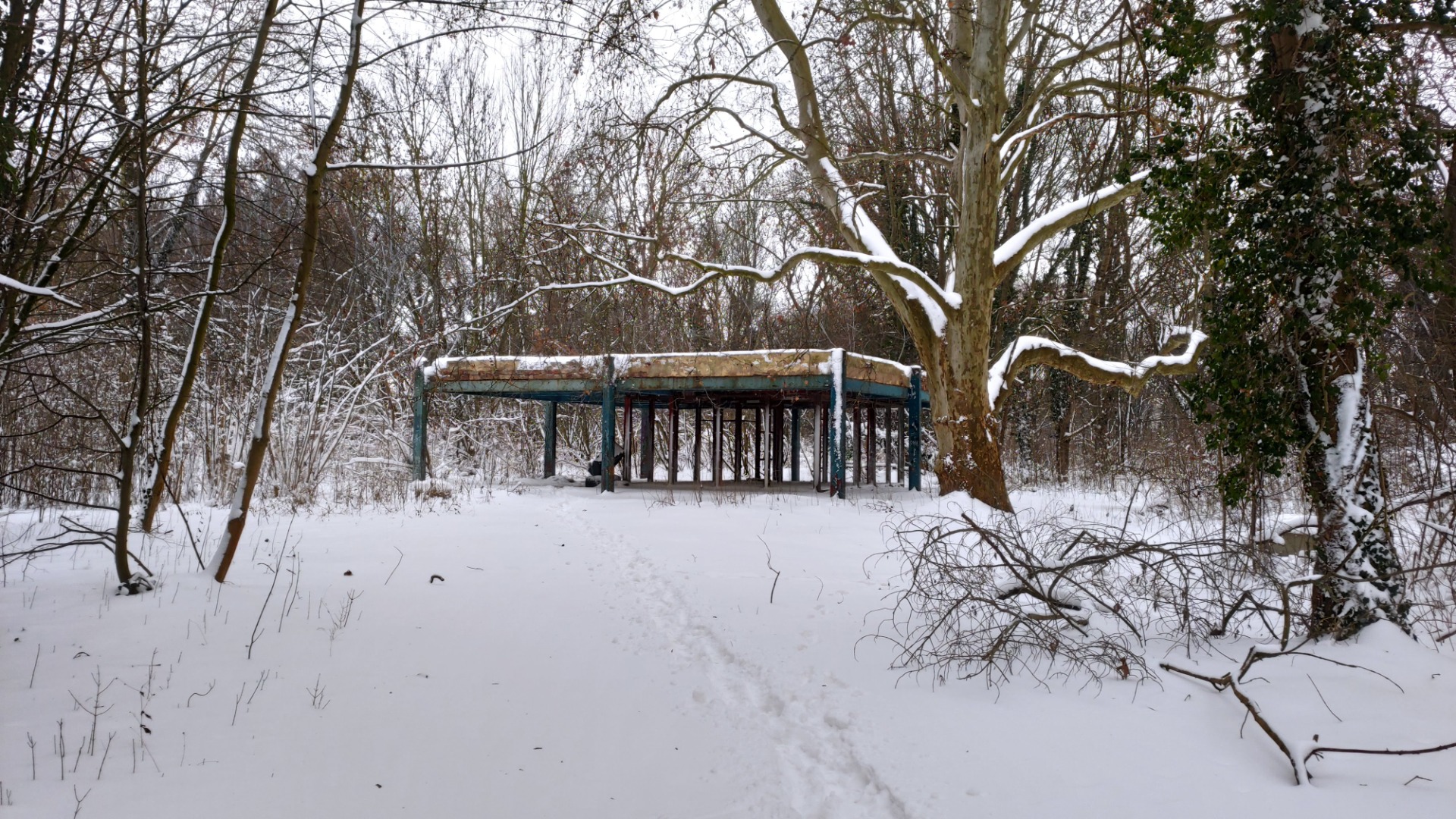
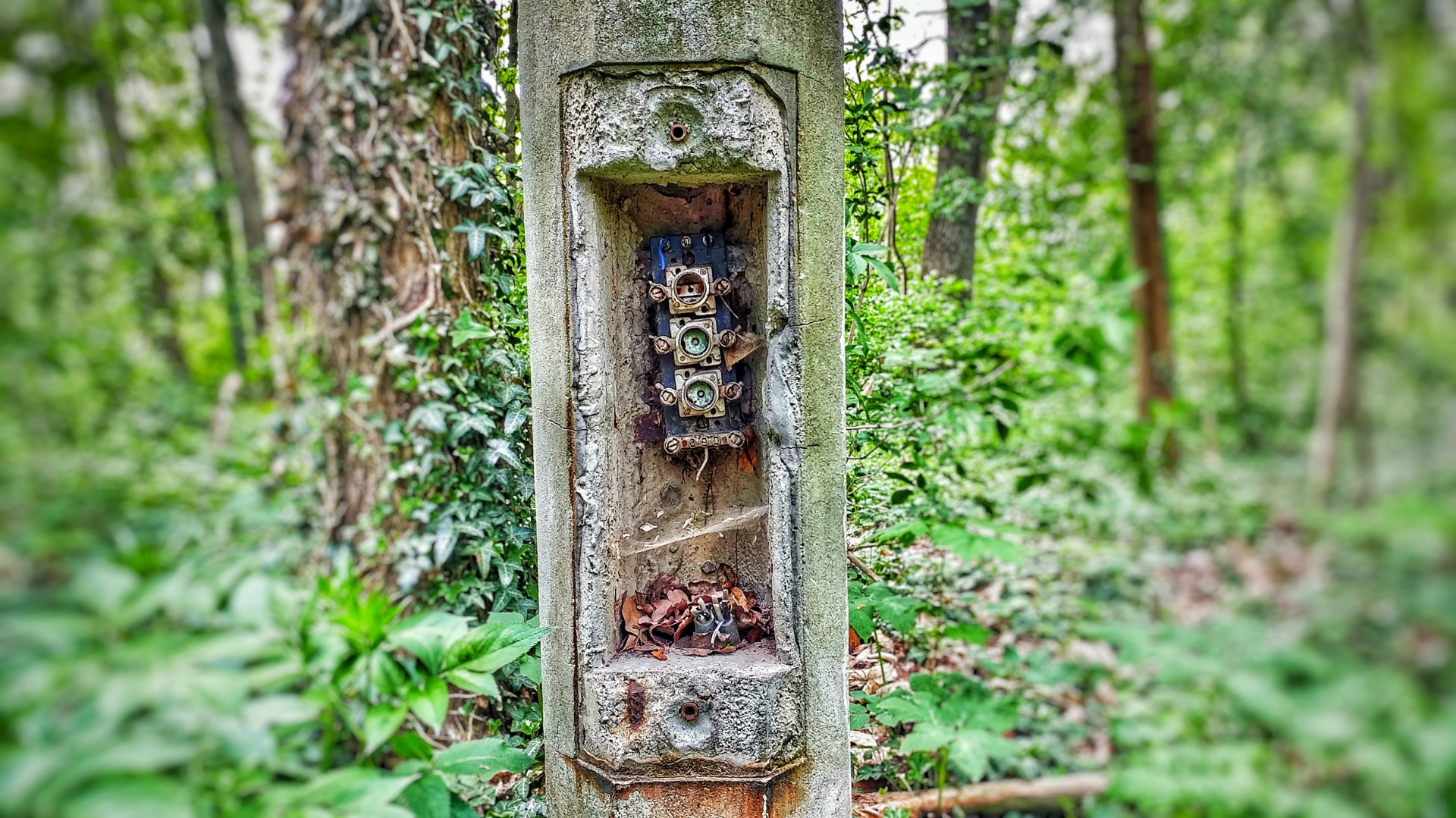
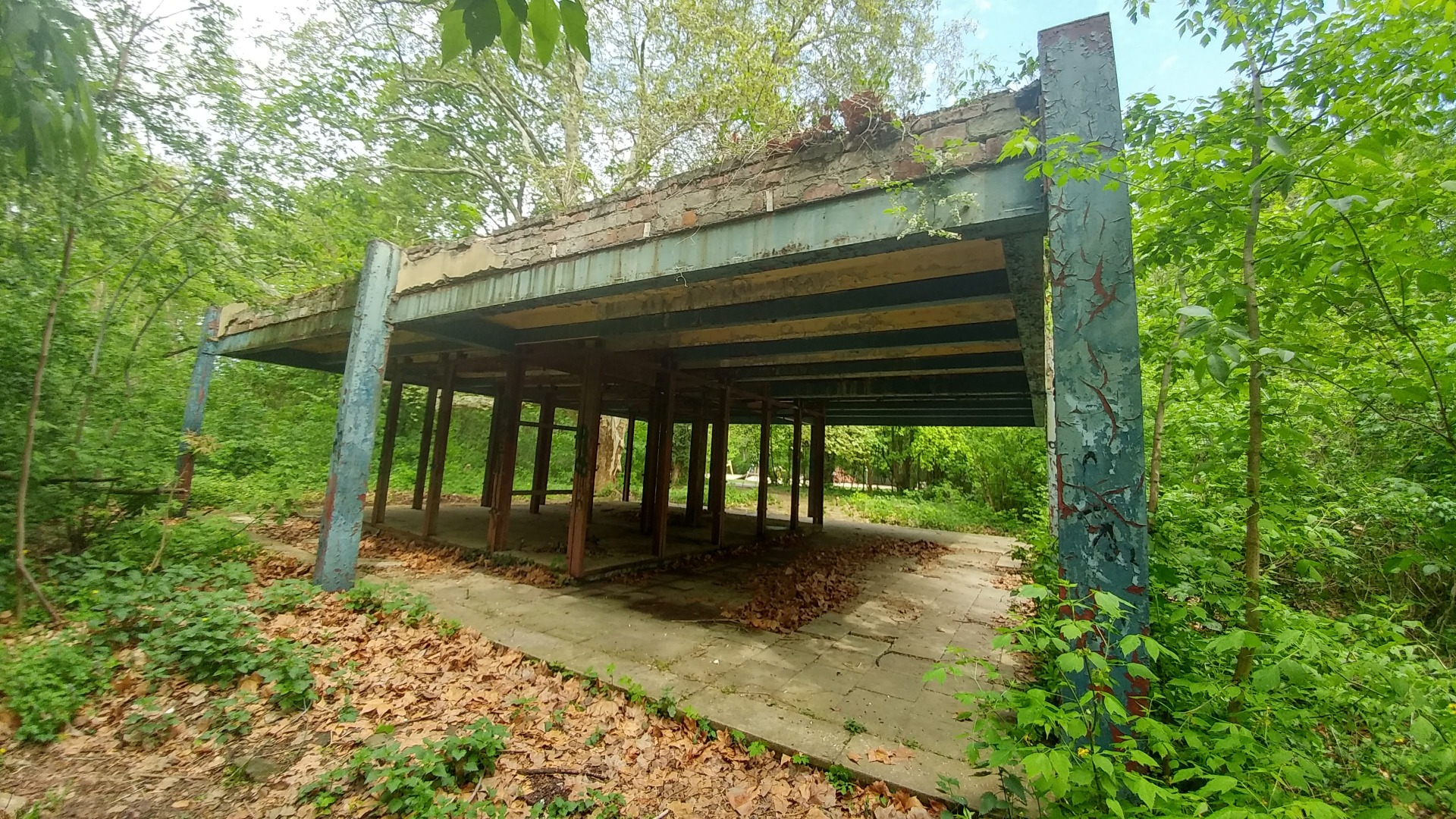
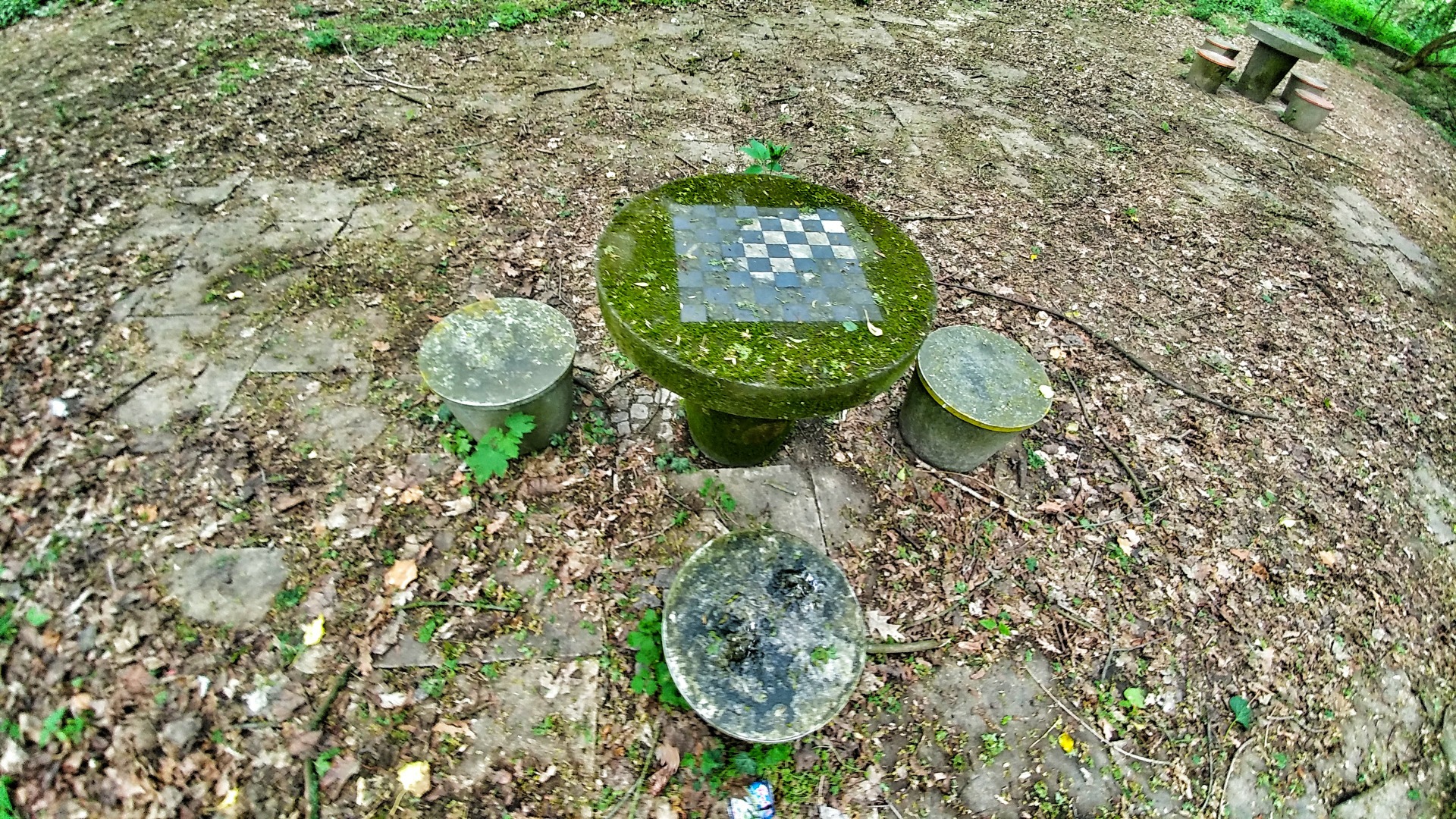
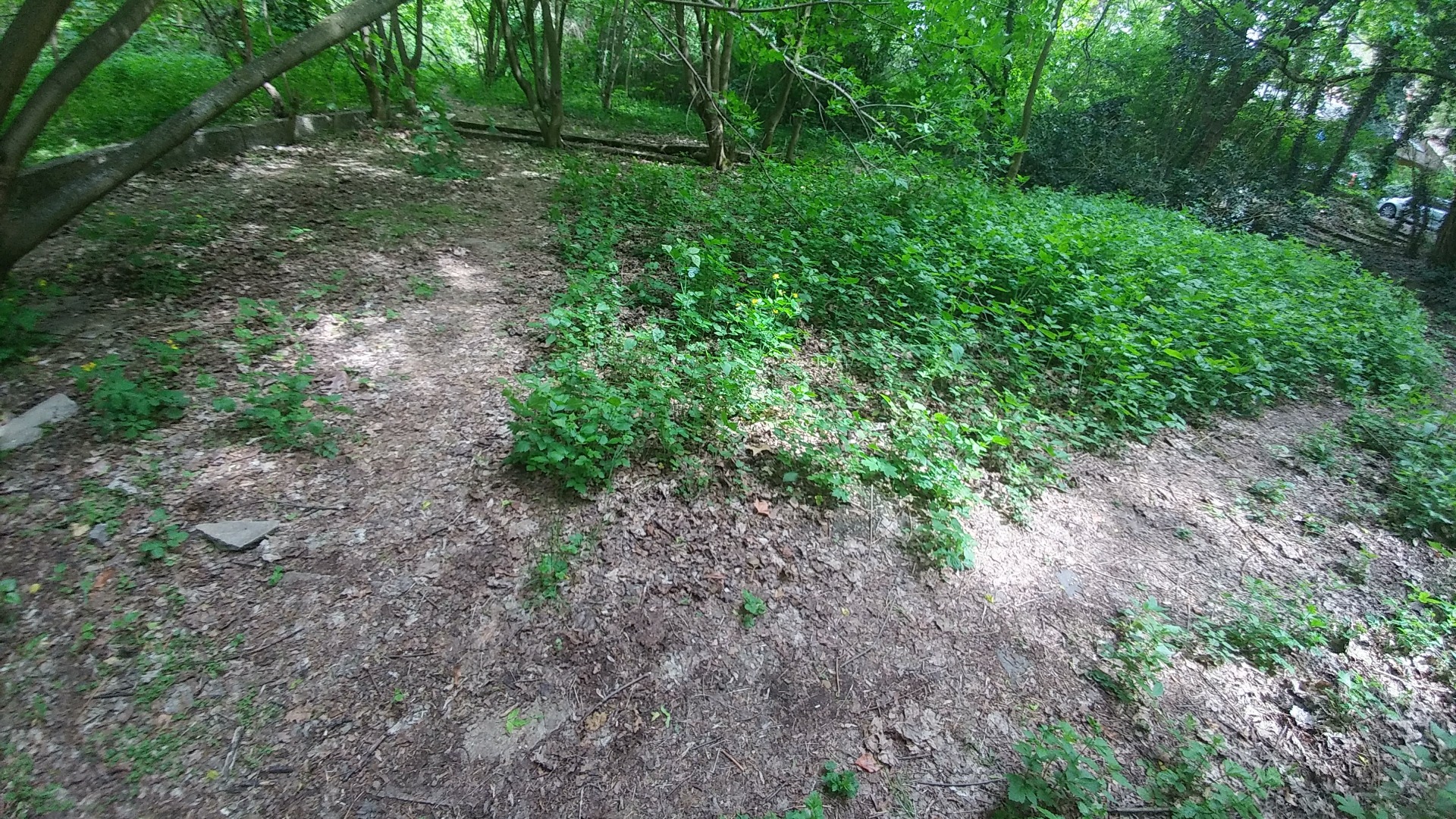
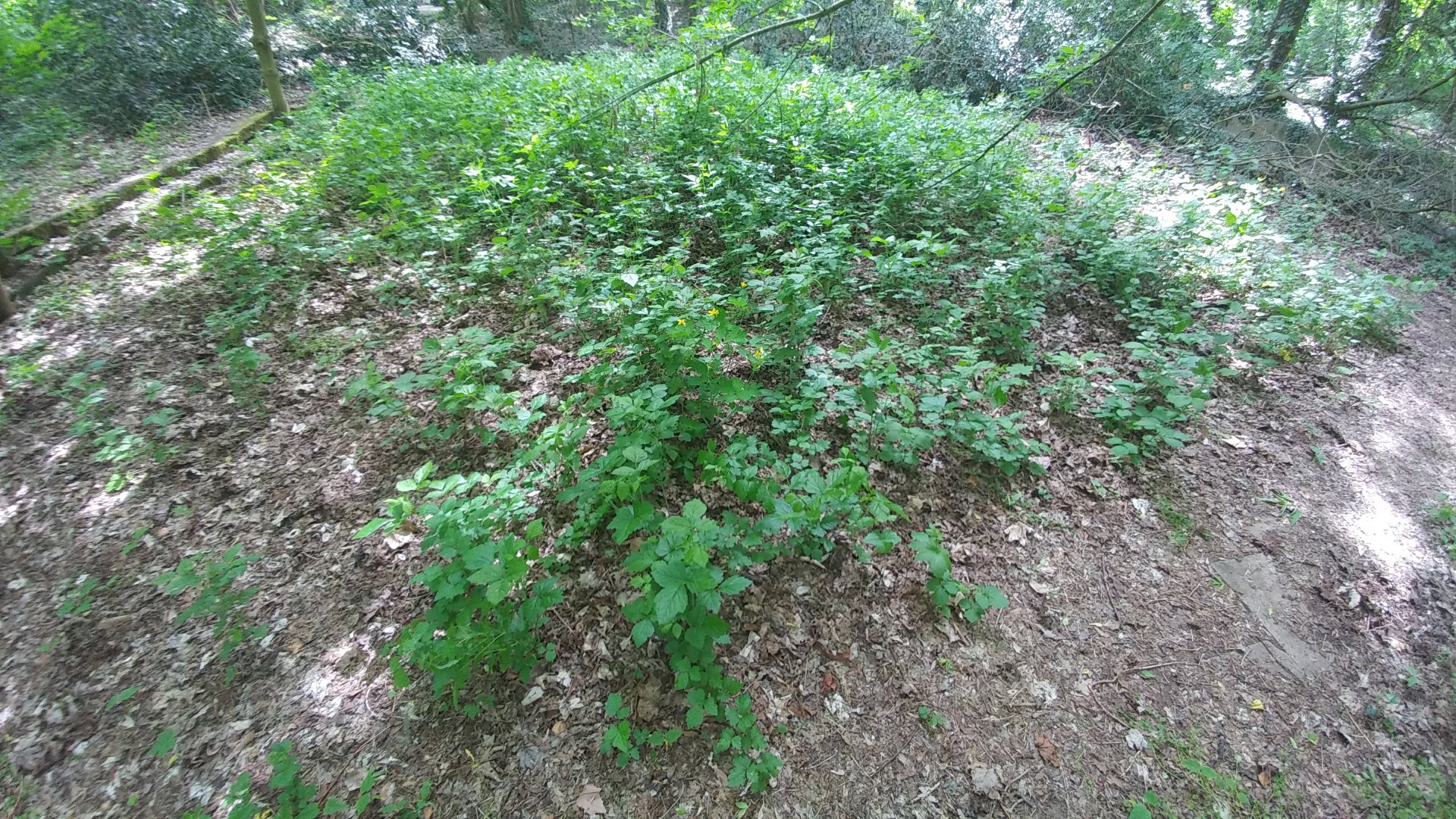
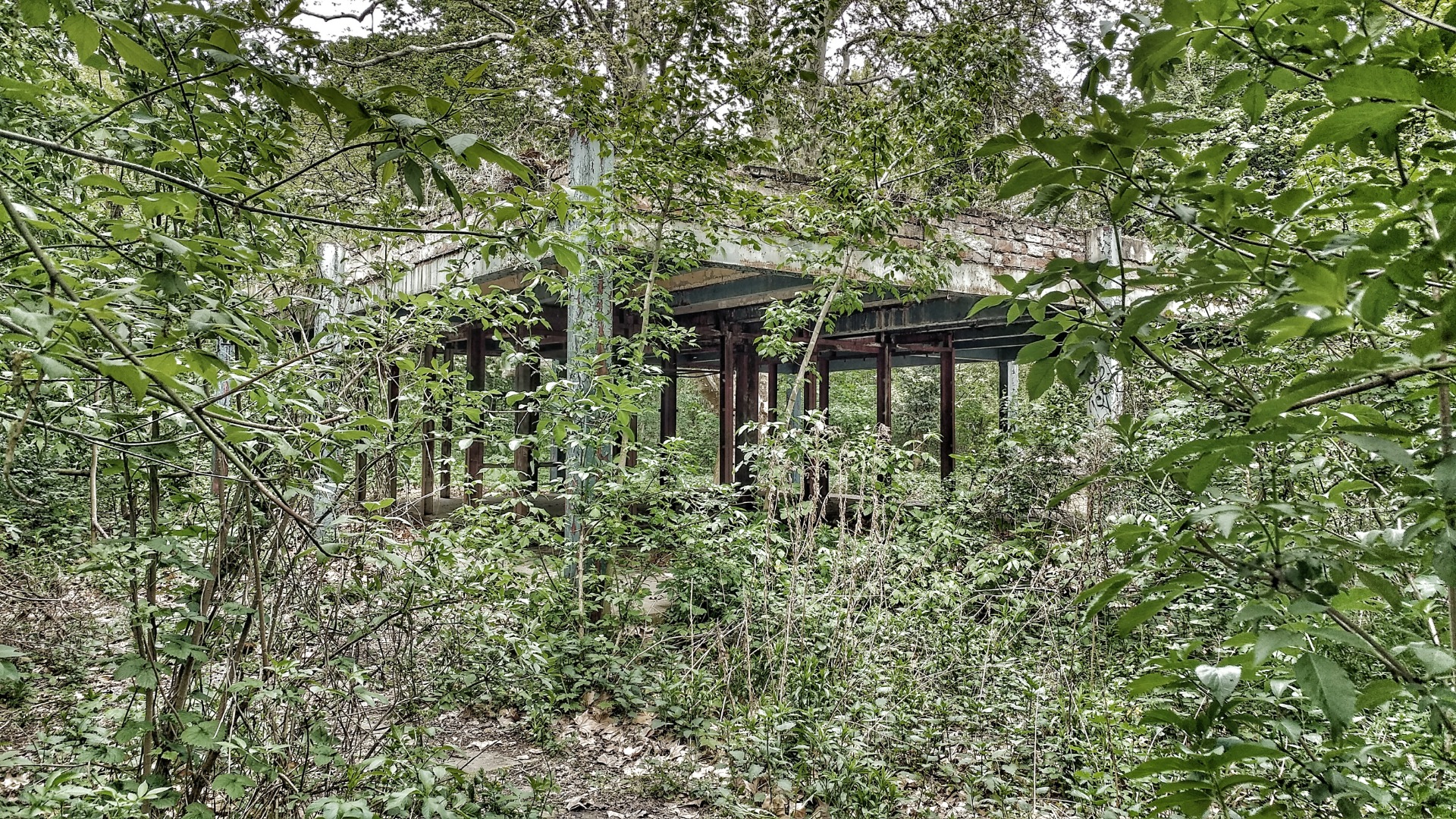
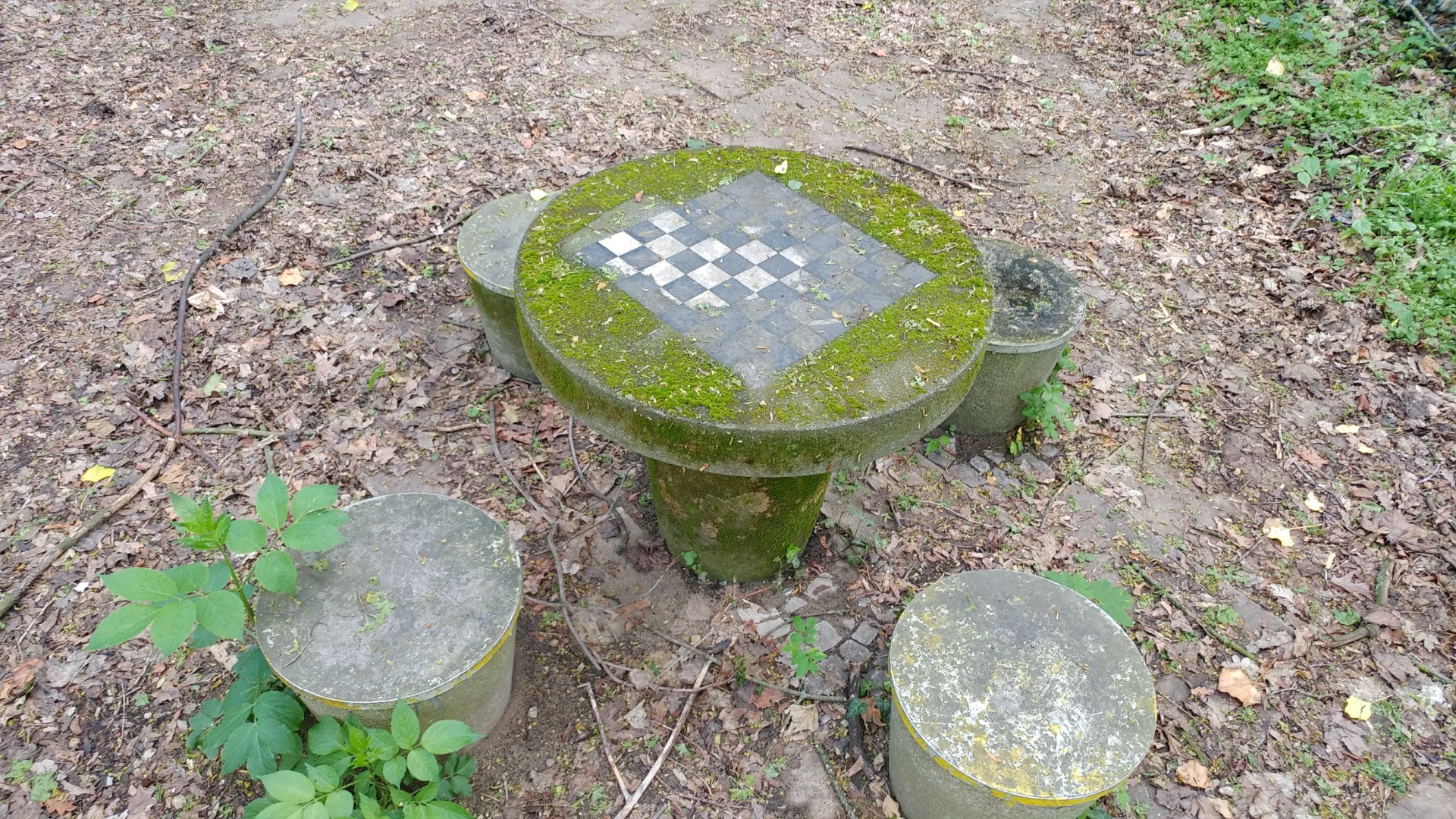
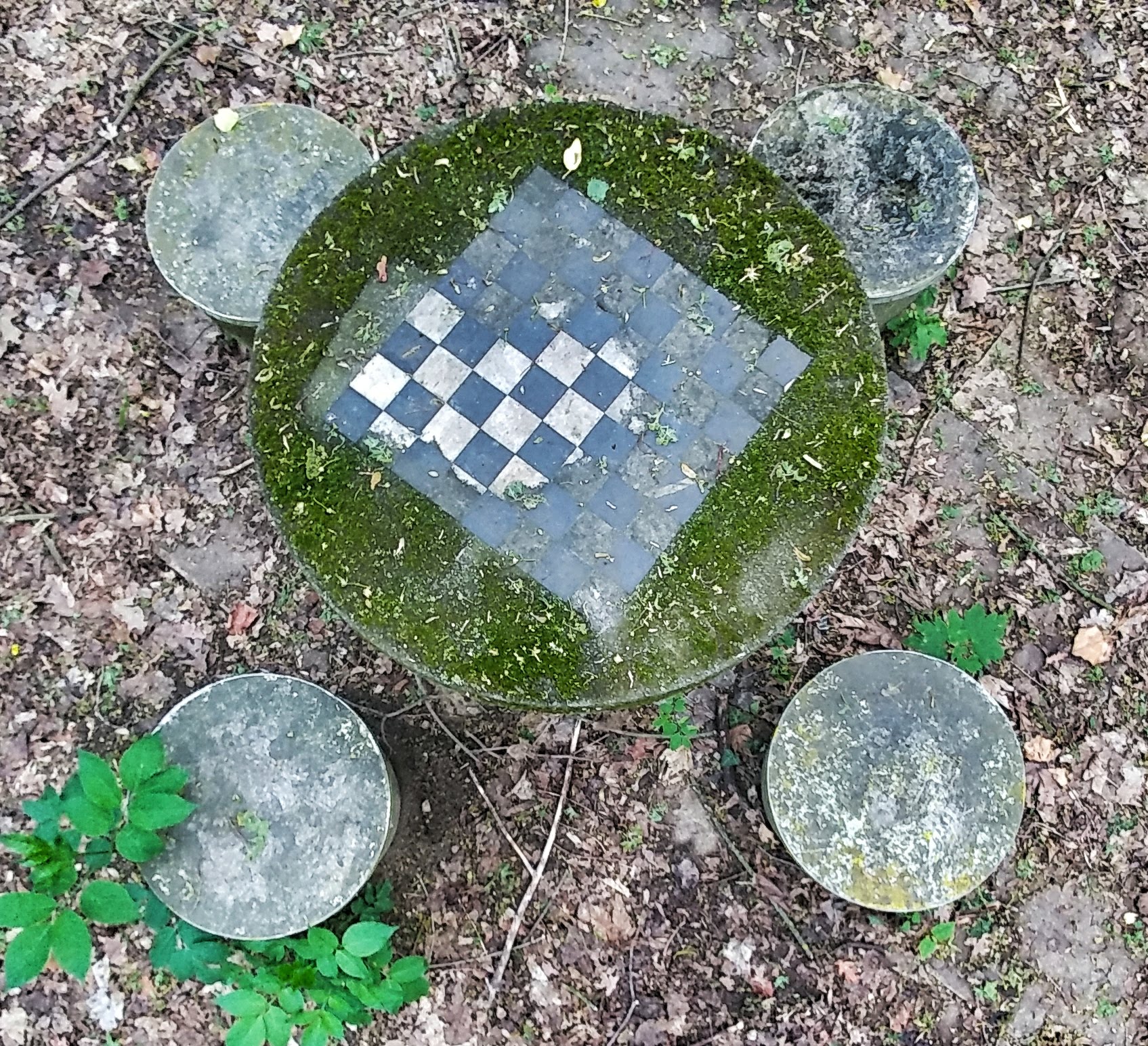
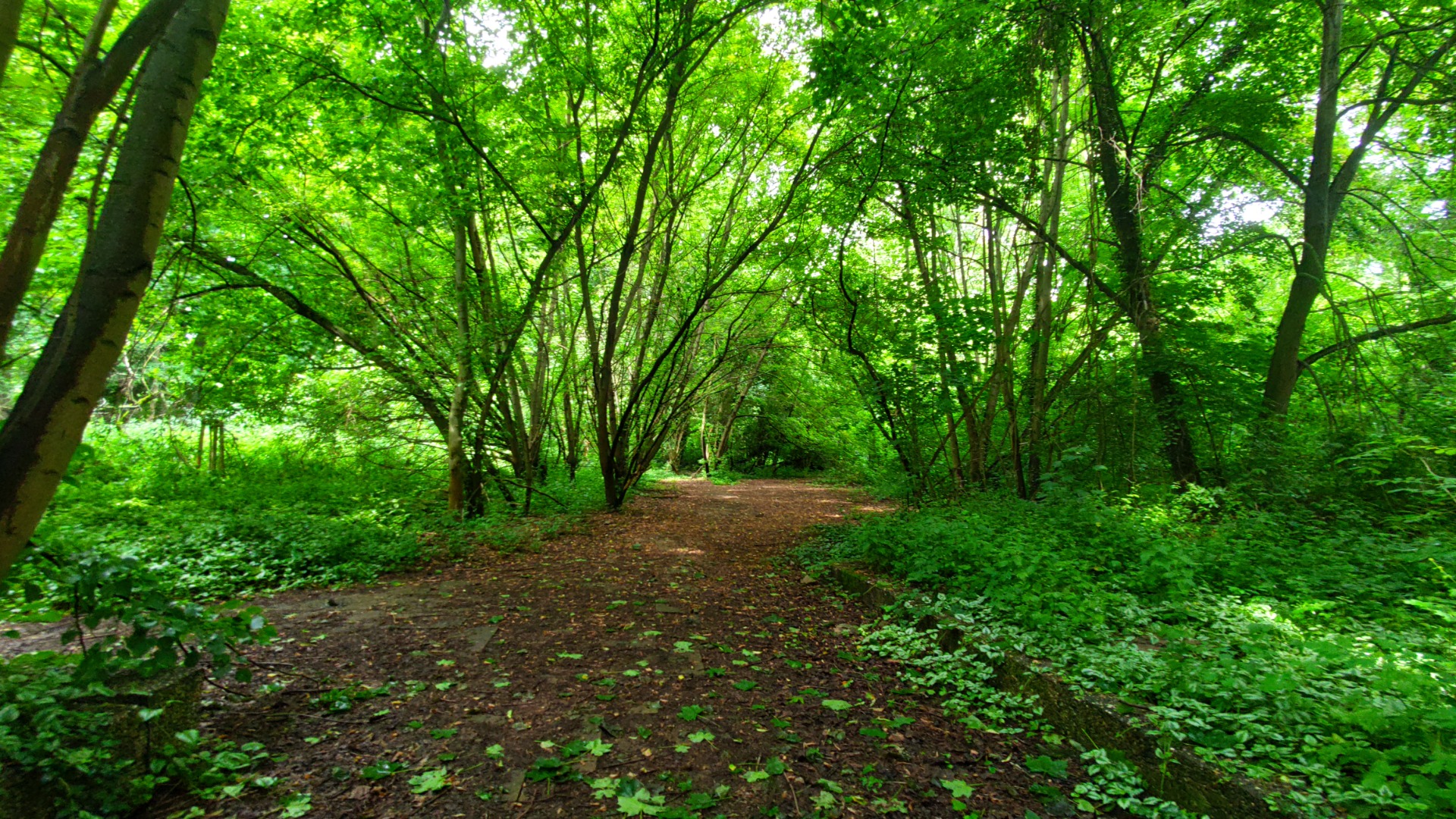
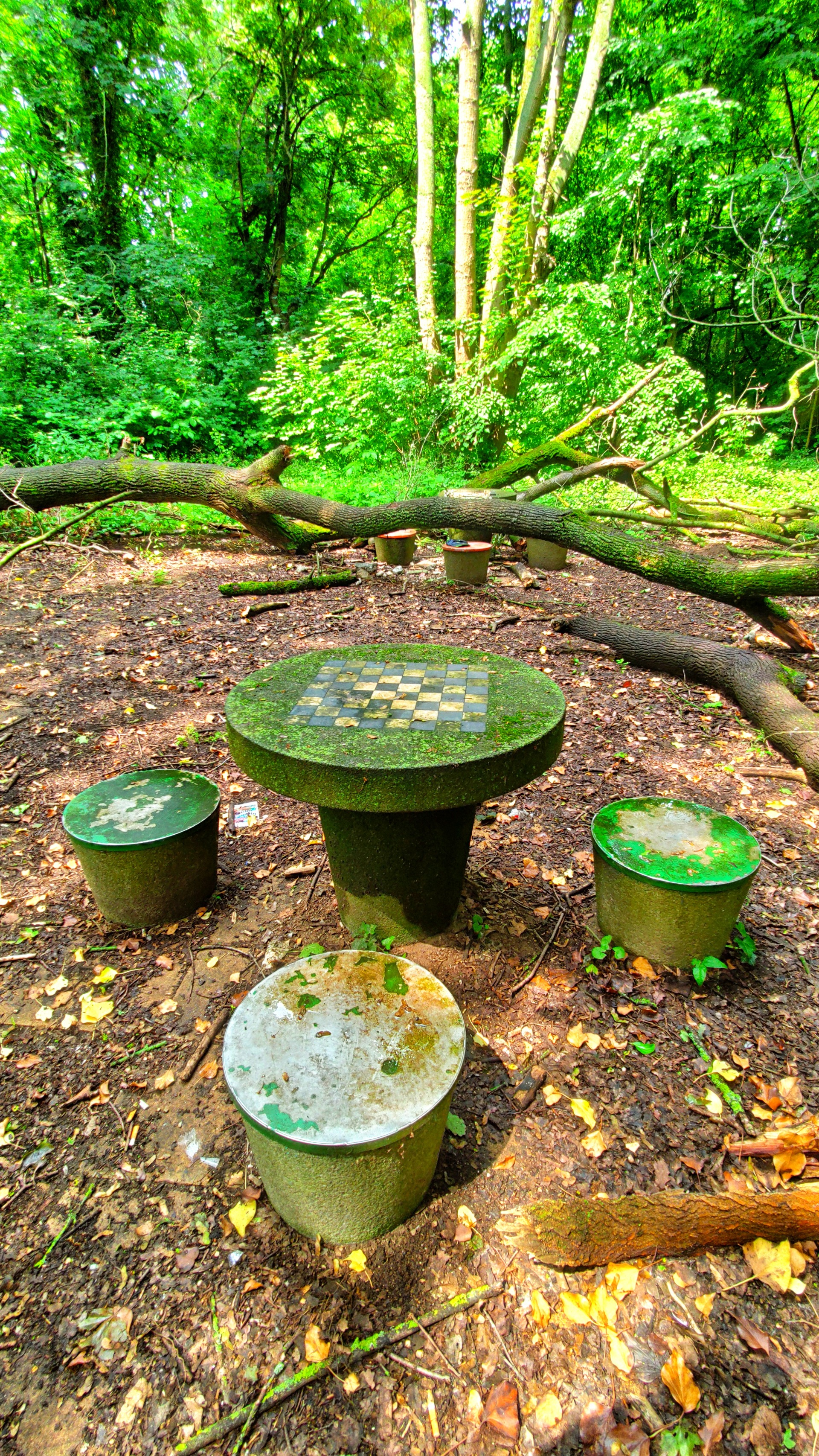
View this post on TravelFeed for the best experience.
